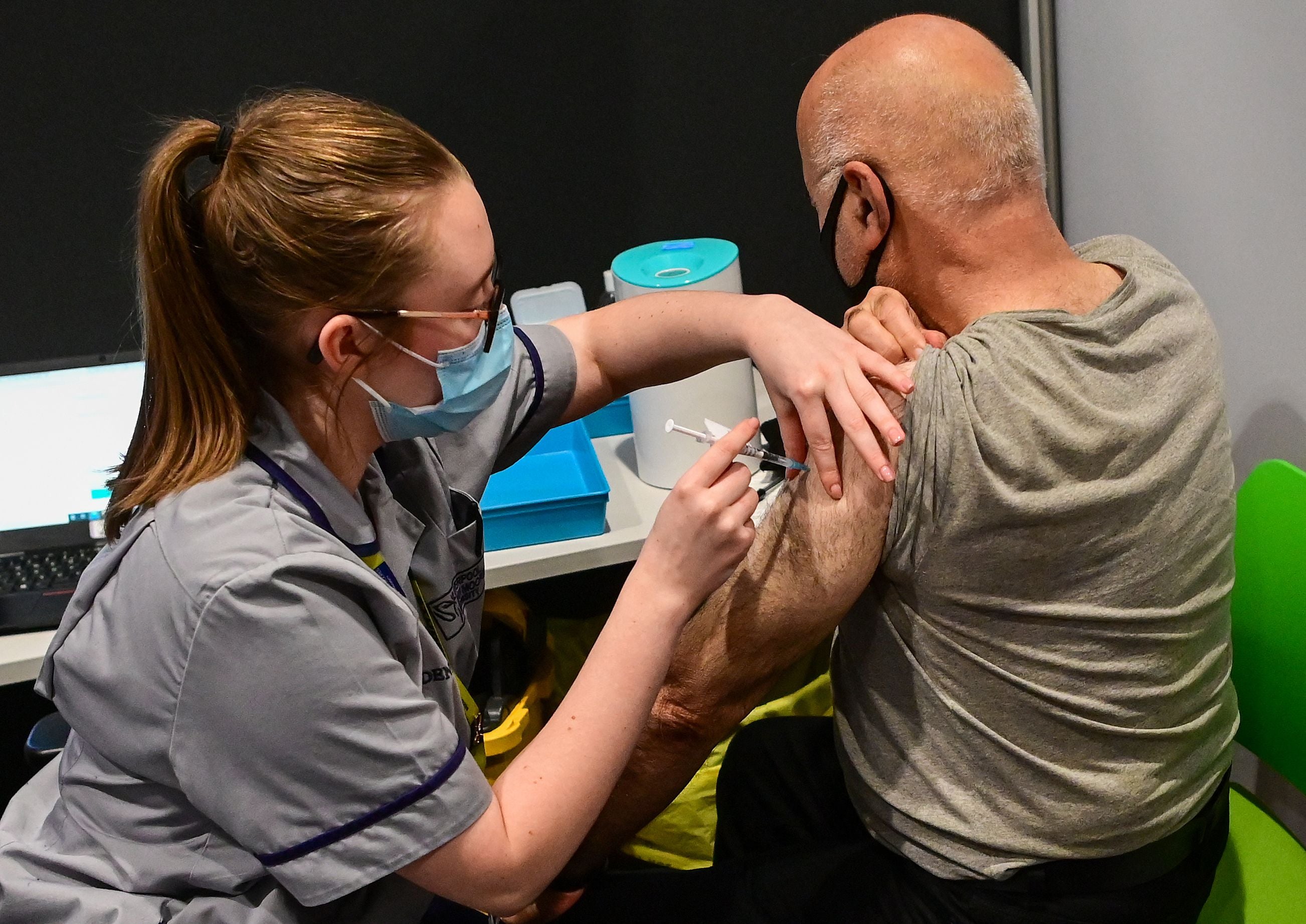Protection from Covid vaccine wanes after three months, study suggests
“Our work highlights the importance of getting boosters”, Professor Vittal Katikireddi said

Your support helps us to tell the story
From reproductive rights to climate change to Big Tech, The Independent is on the ground when the story is developing. Whether it's investigating the financials of Elon Musk's pro-Trump PAC or producing our latest documentary, 'The A Word', which shines a light on the American women fighting for reproductive rights, we know how important it is to parse out the facts from the messaging.
At such a critical moment in US history, we need reporters on the ground. Your donation allows us to keep sending journalists to speak to both sides of the story.
The Independent is trusted by Americans across the entire political spectrum. And unlike many other quality news outlets, we choose not to lock Americans out of our reporting and analysis with paywalls. We believe quality journalism should be available to everyone, paid for by those who can afford it.
Your support makes all the difference.The level of protection provided by the Oxford-Astra Zeneca vaccine against Covid wanes after three months, a new study suggests.
Researchers analysed data for two million people in Scotland and 42 million in Brazil who had been given the Oxford-Astra Zeneca vaccine.
In Scotland, when compared with two weeks after receiving a second dose of the vaccine, there was approximately a fivefold increase in the chance of being admitted to hospital or dying from the virus nearly five months after being double vaccinated.
The decrease in vaccine efficacy appears to begin at around three months, researchers said, adding that the risk of being admitted to hospital or dying at that point is double that of two weeks after the second dose.
The risk increases threefold almost four months after the second vaccine dose. Data from Brazil showed similar results.
The study was carried out as part of the EAVE II project, and the research team included scientists from the Universities of Edinburgh, Glasgow, Aberdeen, Strathclyde, and St Andrew’s; Public Health Scotland; Victoria University of Wellington; Fiocruz; Universidade do Estado do Rio de Janeiro and Universidade Federal de Bahia.
Researchers compared data between Scotland and Brazil due to similarities in the intervals between doses – 12 weeks – and their system for prioritising who was able to access vaccines first during the vaccine roll-out in each country.
During the study period, each country had a different dominant variant. In Scotland, it was Delta, but in Brazil, their dominant variant was Gamma. This meant that the decline in efficacy was likely because of vaccine waning and the impact of variants.
The study also looked at vaccine effectiveness by comparing people who had been vaccinated with those who were unvaccinated, but experts warned these figures should be treated with caution as it is now harder to compare unvaccinated people to vaccinated people with similar characteristics. This is especially true of older age groups where so many are vaccinated.
Professor Aziz Sheikh, Director of the University of Edinburgh’s Usher Institute and EAVE II study lead, said: “Vaccines have been a key tool in fighting the pandemic, but waning in their effectiveness has been a concern for a while. By identifying when waning first starts to occur in the Oxford-Astra Zeneca vaccine, it should be possible for governments to design booster programmes that can ensure maximum protection is maintained.
“If eligible for a booster and you have not had yet had one, I would highly recommend that you book one soon.”
Professor Vittal Katikireddi at the University of Glasgow said: “Our analyses of national datasets from both Scotland and Brazil suggest that there is considerable waning of effectiveness for the Oxford AstraZeneca vaccine, with protection against severe Covid-19 falling over time.
“We studied two million people in Scotland and over 42 million people in Brazil who had received two doses of the Oxford-AstraZeneca vaccine. More than four months after receiving a second dose, the risk of experiencing either a Covid-19 hospitalisation or death was approximately five times greater than the period of maximum vaccine protection after accounting for changes in infection rates and a range of other factors.
“Our work highlights the importance of getting boosters, even if you’ve had two doses of the Oxford AstraZeneca vaccine, as soon as you are able to.”
Dr Peter English called the findings “concerning”, adding: “In the short term, it emphasises the need for a third (“booster”) dose; and in the medium to longer term it raises questions about how effectively the current generation of vaccines can prevent future illness.”
The study was funded by the Medical Research Council, UK Research and Innovation Industrial Strategy Challenge Fund, the National Institute for Health Research and Health Data Research UK (HDR UK), and was supported by the Scottish Government.
The UK’s vaccine roll-out has been accelerated in recent weeks to combat the spread of the Omicron variant of Covid. According to NHS England, over 4.6 million Covid-19 booster jabs were delivered just last week.
Join our commenting forum
Join thought-provoking conversations, follow other Independent readers and see their replies
Comments